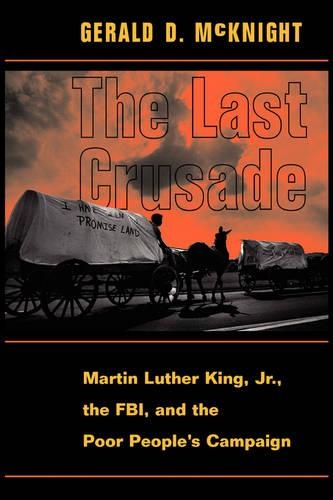
The Last Crusade: Martin Luther King Jr., The FBI, and The Poor People's Campaign
(Hardback)
Publishing Details
The Last Crusade: Martin Luther King Jr., The FBI, and The Poor People's Campaign
By (Author) Gerald D Mcknight
Basic Books
Basic Books
9th January 1998
United States
Classifications
Tertiary Education
Non Fiction
Ethnic studies
Pressure groups, protest movements and non-violent action
323.1196073
Physical Properties
Hardback
208
Width 155mm, Height 235mm
Description
In The Last Crusade, Gerald McKnight examines the Poor Peoples Campaign, the last large-scale demonstration of civil rightsera America, and the systematic efforts of FBI director J. Edgar Hoover and his executive officers to subvert Kings ambitious effort to force the federal government to live up to its promises of a Great Society. The book also looks at Kings last days as he helped Memphis sanitation workers in their labor-cum-civil rights struggle with a recalcitrant and racist city government. Although there is no persuasive evidence that the FBI and the Memphis police conspired to assassinate King, McKnight marshals evidence to show that neither agency was blameless. The conventional view of the Poor Peoples Campaign is that it was a self-inflicted failure. The blame rested squarely on the shoulders of the second-raters of the Southern Christian Leadership Conference who failed to fill the leadership vacuum after Kings assassination. But, as McKnight shows, there was a hidden, dark counterpoint to the accepted versionnamely, the triumph of the 1960s American surveillance state and its repressive power and flagrant violation of protected freedoms. In fact, whatever the FBI wanted to do to disrupt the Campaign, it did, aided and abetted by local police agencies and elements of the federal government, including military intelligence.
Author Bio
Gerald D. McKnight is professor of history at Hood College, where he is chair of the History and Political Science Department.
